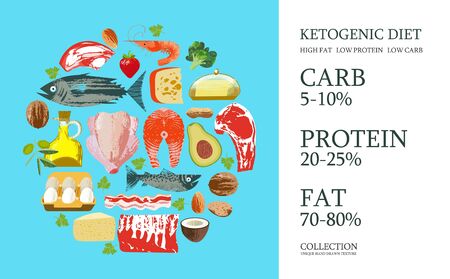Introduction to Cardiac Rehab and Nutrition
Cardiac rehabilitation is a vital component of recovery for individuals who have experienced heart-related events such as heart attacks, cardiac surgery, or the onset of heart failure. In the United Kingdom, cardiac rehab programmes are multidisciplinary by design and strongly emphasise the importance of lifestyle modifications, among which nutrition plays a pivotal role. Evidence consistently demonstrates that tailored dietary advice can significantly improve cardiovascular outcomes and enhance patients overall well-being. According to current national guidelines, such as those from the National Institute for Health and Care Excellence (NICE) and the British Heart Foundation (BHF), optimising nutrition is an essential part of secondary prevention in heart disease management. These guidelines stress reducing saturated fat, salt, and added sugars while increasing fruit, vegetable, wholegrain, and oily fish intake. Within this framework, British dieticians work closely with patients to provide practical support and education, ensuring that dietary changes are both achievable and culturally relevant within the UK context.
2. The Role of British Dieticians in Cardiac Rehabilitation
British dieticians play a central role in cardiac rehabilitation, providing expert nutritional guidance tailored to each patient’s unique needs. Their responsibilities go far beyond meal planning; they are vital members of multidisciplinary teams working alongside cardiologists, physiotherapists, nurses, and psychologists to support holistic patient recovery. In the UK, all registered dieticians hold a degree approved by the Health and Care Professions Council (HCPC) and adhere to strict evidence-based practice standards. This ensures that patients receive up-to-date, safe, and effective dietary advice as part of their cardiac rehab journey.
Key Responsibilities of British Dieticians in Cardiac Rehab
| Responsibility | Description |
|---|---|
| Nutritional Assessment | Evaluating individual dietary habits, medical history, and risk factors to inform personalised interventions. |
| Education & Counselling | Delivering one-to-one or group sessions on heart-healthy eating, portion control, and label reading. |
| Dietary Planning | Developing tailored meal plans considering cultural preferences, allergies, and co-existing conditions such as diabetes or hypertension. |
| Monitoring & Support | Tracking progress, addressing challenges, and adapting recommendations throughout the rehabilitation programme. |
Qualifications and Professional Standards
All practising dieticians in the UK must be registered with the HCPC and typically possess a BSc or MSc in Dietetics or Nutrition. Many also pursue ongoing professional development through the British Dietetic Association (BDA), ensuring they remain abreast of emerging research and best practices. This rigorous training underpins their ability to translate complex nutritional science into practical advice that empowers patients to make sustainable lifestyle changes.
Multidisciplinary Collaboration in Cardiac Rehab Teams
The success of cardiac rehabilitation hinges on teamwork. British dieticians collaborate closely with other healthcare professionals to create cohesive care plans that address not just physical recovery but emotional wellbeing too. Regular case discussions ensure that dietary strategies are aligned with medication regimens, exercise programmes, and psychological support—offering patients a truly integrated approach to their heart health.

3. Key Dietary Changes Recommended in the UK
In the context of cardiac rehabilitation, British dieticians play a crucial role in guiding patients through evidence-based dietary adjustments that are tailored to the UK population. One of the most widely endorsed patterns is the Mediterranean diet, which has consistently been linked to improved cardiovascular outcomes. This eating plan emphasises an abundance of fruits, vegetables, wholegrains, legumes, nuts, and olive oil, alongside moderate consumption of fish and poultry. It encourages limited intake of red meat and processed foods—an approach shown to reduce heart disease risk.
Another cornerstone of nutritional guidance in the UK is the Eatwell Guide. This government-backed resource offers a visual representation of how different food groups should be balanced in daily meals. The Eatwell Guide recommends that over a third of our diet comes from fruit and vegetables, with another third from starchy carbohydrates—preferably wholegrain varieties. Dairy or dairy alternatives and protein sources such as beans, pulses, fish, eggs, and lean meats are also incorporated in appropriate proportions. Crucially, it highlights the importance of choosing unsaturated oils and spreads in small amounts.
A key focus for cardiac rehab patients is the management of salt and fat intake. High salt consumption is strongly associated with elevated blood pressure—a major risk factor for heart disease. British dieticians advise limiting salt to no more than 6 grams per day (about one teaspoon), encouraging home-cooked meals where salt content can be controlled and suggesting herbs and spices as flavourful alternatives. Fat intake is also carefully considered; saturated fats found in butter, cheese, fatty cuts of meat, and many processed foods can raise cholesterol levels. Patients are therefore guided towards healthier fats such as those found in rapeseed oil, olive oil, avocados, nuts, and oily fish.
By integrating these recommendations into everyday life—whether that’s preparing home-cooked meals using fresh ingredients or making informed choices when shopping—patients are empowered to take control of their heart health. British dieticians support individuals in making sustainable changes that fit seamlessly with local food habits and cultural preferences, ensuring that dietary advice is both effective and practical for long-term recovery.
4. Addressing Cultural and Lifestyle Factors
One of the key strengths of British dieticians working in cardiac rehabilitation is their ability to recognise and respect the diverse cultural backgrounds and lifestyles present within the UK. Tailoring nutritional advice goes beyond simply providing a list of ‘good’ or ‘bad’ foods; it requires a nuanced understanding of cultural food preferences, socioeconomic challenges, and regional eating habits. This patient-centred approach ensures that dietary recommendations are practical, sustainable, and relevant to each individual’s daily life.
Understanding Cultural Food Preferences
Britain’s multicultural landscape means that cardiac rehab patients may come from a wide range of ethnic backgrounds, each with unique culinary traditions. Dieticians actively engage with patients to learn about their typical meals, religious dietary restrictions, and family eating customs. By doing so, they can suggest heart-healthy alternatives or modifications that honour traditional dishes rather than suggesting wholesale changes that may not be realistic or acceptable.
Socioeconomic Considerations
The cost and accessibility of nutritious foods can vary significantly across different communities in the UK. Dieticians take these factors into account by recommending affordable options available at local supermarkets or markets, and offering practical tips for shopping on a budget. They may also connect patients with community resources such as food banks or healthy cooking classes. Here is a simple comparison:
| Socioeconomic Factor | Dietician’s Approach |
|---|---|
| Limited budget | Suggesting value-brand wholegrains, tinned fish, frozen vegetables |
| Lack of time for cooking | Providing quick meal recipes using minimal ingredients |
| Access to fresh produce | Recommending shelf-stable or frozen alternatives |
Regional Dietary Habits Across the UK
Regional variations in diet—such as the prevalence of fried foods in Scotland or high tea traditions in England—are considered when creating nutrition plans. British dieticians use their knowledge of local cuisine to recommend small but effective changes: for example, swapping battered fish for grilled options, or incorporating more fruit into afternoon snacks without abandoning cherished rituals.
This culturally sensitive and holistic strategy enables patients from all walks of life to embrace dietary changes as part of their recovery journey, ultimately supporting better heart health outcomes throughout Britain.
5. Patient-Centred Nutritional Support
British dieticians play a pivotal role in cardiac rehabilitation by adopting patient-centred strategies that prioritise individual needs, preferences, and circumstances. This personalised approach is essential for empowering patients to take ownership of their dietary habits and make sustainable lifestyle changes. Dieticians begin by conducting comprehensive assessments, which include evaluating medical history, current eating patterns, cultural background, and personal goals. By understanding each patients unique situation, they can develop bespoke nutritional plans that are realistic and achievable.
Empowering Through Education and Collaboration
A key strategy employed by British dieticians is collaborative goal setting. Rather than prescribing generic diets, dieticians work alongside patients to identify small, manageable changes tailored to their daily lives—such as swapping saturated fats for healthier alternatives or increasing fibre intake through familiar British foods like oats and wholemeal bread. Education is central to this process; dieticians provide clear explanations on the benefits of specific dietary adjustments, using accessible language and practical examples relevant to the UK context. This fosters a sense of empowerment, encouraging patients to ask questions and actively participate in their own care.
Encouraging Adherence with Practical Tools
To support adherence, British dieticians offer practical tools such as meal planning guides, portion size visuals, and easy-to-follow recipes that suit local tastes and traditions. They might recommend shopping at local markets or choosing seasonal produce, making healthy eating both affordable and enjoyable. Regular follow-up appointments—either face-to-face or via digital platforms—allow for ongoing support, troubleshooting barriers as they arise, and celebrating progress.
Sustaining Long-Term Change
The focus on long-term sustainability distinguishes the approach of British dieticians in cardiac rehab. Beyond immediate recovery, they emphasise building lifelong skills such as mindful eating, label reading, and cooking confidence. Group education sessions or peer-support groups may also be utilised to foster community encouragement and share success stories within a supportive environment. Ultimately, patient-centred nutritional support in the UK aims not only to reduce cardiovascular risk but also to enhance overall well-being and quality of life through practical, culturally sensitive guidance.
6. Overcoming Challenges and Looking Ahead
While the benefits of dietary changes during cardiac rehabilitation are clear, many patients face significant obstacles on their journey to a heart-healthy lifestyle. Understanding these challenges is crucial in designing effective support strategies. Common barriers include ingrained eating habits, limited cooking skills, cultural food preferences, and even financial constraints—factors that can make long-term change feel daunting.
Addressing Everyday Barriers
British dieticians are acutely aware of these hurdles and work closely with patients to tailor solutions to individual circumstances. For instance, they may offer practical advice on reading food labels in UK supermarkets, or suggest affordable heart-healthy alternatives readily available through the NHS Healthy Start scheme. Recognising the importance of tradition and social connections in British food culture, dieticians frequently help patients adapt favourite recipes rather than eliminating them entirely.
Innovative Approaches for Ongoing Support
Innovation is at the forefront of contemporary cardiac rehab in the UK. Many NHS Trusts now provide digital resources such as meal planning apps, online cooking demonstrations, and virtual group support sessions. Dieticians also collaborate with local community centres to run heart health workshops and cooking classes designed for people from diverse backgrounds. This multifaceted approach ensures that nutritional guidance remains accessible and relevant after patients complete their initial rehabilitation programme.
Looking Forward: Sustaining Heart Health for Life
The role of British dieticians continues to evolve as new research emerges and patient needs shift. By fostering a supportive environment—one that addresses not just what people eat but how they live—dieticians empower individuals to sustain healthy habits long after rehab ends. Ultimately, this collaborative, culturally sensitive approach is paving the way for better heart health across the UK.


